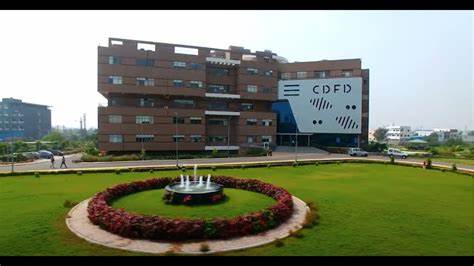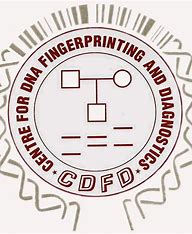Centre for DNA Fingerprinting and Diagnostics (CDFD)
Address:
Centre for DNA Fingerprinting and Diagnostics (CDFD)
Tata Nagar, Uppal, Hyderabad,
Telangana – 500 039,
India
Postal Code (ZIP Code):
500 039
About Centre for DNA Fingerprinting and Diagnostics (CDFD)
The Centre for DNA Fingerprinting and Diagnostics (CDFD), located in Hyderabad, Telangana, is a leading research and diagnostic laboratory in India that specializes in cutting-edge research in the field of genetics, genomics, and molecular diagnostics. Established in 1996 by the Department of Biotechnology (DBT), Government of India, CDFD has made significant contributions to the advancement of molecular biology and the application of DNA technologies in areas such as healthcare, forensics, agriculture, and biodiversity conservation. As a premier institution, CDFD has earned international recognition for its expertise in the areas of DNA fingerprinting, molecular diagnostics, and genetic research.
The centre’s primary goal is to advance the scientific understanding of human genetics and offer diagnostic services that support clinical applications. CDFD also plays a pivotal role in public health by providing accurate, state-of-the-art genetic testing services that assist in disease diagnosis, treatment planning, and prevention. Furthermore, it is actively involved in research related to the molecular genetics of diseases, including cancer, genetic disorders, infectious diseases, and rare genetic syndromes.
CDFD is one of the key institutes that has contributed to India’s growing capabilities in genomics and biotechnology, working closely with other academic institutions, healthcare providers, industry partners, and government agencies to build a robust foundation for advancing the country’s research and diagnostic infrastructure.
History and Formation of CDFD
The Centre for DNA Fingerprinting and Diagnostics (CDFD) was established as a result of the growing need for advanced research and diagnostic technologies in the field of molecular biology and genetics. With the rise of DNA-based techniques for identification and disease diagnosis, the Government of India recognized the importance of setting up a specialized center that would address the challenges of genetic research, diagnostics, and forensic applications.
In the early years, CDFD’s focus was primarily on DNA fingerprinting and its application in human identification, forensic analysis, and the tracking of genetic disorders. The institute gained significant recognition for its pioneering work in establishing DNA fingerprinting as a scientific tool for criminal investigations, paternity testing, and population genetics studies. Over time, CDFD expanded its research portfolio to include molecular diagnostics, gene sequencing, and the study of various genetic diseases that were prevalent in India.
With a combination of research excellence and technological innovation, CDFD has become a premier institute, contributing significantly to both basic and applied research in molecular genetics.
Mission and Vision
Mission:
CDFD’s mission is to advance knowledge in molecular genetics and provide high-quality diagnostic services for genetic diseases. The institute is committed to conducting cutting-edge research in the field of genomics, forensic science, bioinformatics, and molecular diagnostics, with a focus on applications that have a direct impact on healthcare, crime investigation, and biodiversity.
Vision:
The vision of CDFD is to establish itself as a global leader in genomic research, diagnostics, and biotechnology innovation. It aims to improve healthcare outcomes through the development of reliable, cost-effective genetic tests and treatments while contributing to the scientific community’s understanding of genetic variation and disease pathogenesis.
Research and Areas of Focus
CDFD’s research spans various aspects of molecular genetics, genomics, and biotechnology. The institute’s work is highly interdisciplinary, integrating molecular biology, bioinformatics, and clinical diagnostics to address some of the most pressing health challenges in India and around the world. Some of the key areas of focus at CDFD include:
- DNA Fingerprinting and Forensics: One of CDFD’s hallmark contributions to the scientific world has been in the field of DNA fingerprinting. DNA profiling techniques have become essential tools in criminal investigations, paternity testing, and establishing kinship. CDFD pioneered the development and application of DNA fingerprinting technology in India and has worked extensively with law enforcement agencies, hospitals, and research institutions to provide forensic analysis for criminal cases, disaster victim identification, and genealogical studies.
- Molecular Diagnostics: CDFD has made significant strides in the area of molecular diagnostics, focusing on developing genetic tests for identifying and diagnosing a variety of genetic disorders, cancers, and infectious diseases. The institute uses advanced technologies such as polymerase chain reaction (PCR), next-generation sequencing (NGS), and microarray analysis to identify mutations, gene expression patterns, and pathogens at a molecular level.
The institute offers diagnostic services for a wide range of genetic diseases, including hemoglobinopathies, neurological disorders, inherited metabolic diseases, and hereditary cancers. CDFD also plays a critical role in offering personalized genetic testing, which is an emerging area in healthcare that can guide treatment decisions based on an individual’s genetic profile.
- Human Genomics and Genetic Disorders: A core research area at CDFD is the study of human genetics and the molecular basis of inherited diseases. Researchers at the institute work on identifying the genetic causes of various diseases such as sickle cell anemia, thalassemia, Duchenne muscular dystrophy, autism, and cystic fibrosis. By understanding the genetic mutations responsible for these disorders, CDFD contributes to the development of diagnostic tools, carrier screening programs, and gene therapy approaches to mitigate their impact.
The institute also conducts large-scale studies on the genetic diversity of Indian populations, which has significant implications for understanding the distribution of genetic diseases and tailoring public health interventions accordingly.
- Cancer Genomics: CDFD is actively involved in cancer research, particularly in the identification of genetic mutations that drive the development of various cancers, including breast cancer, lung cancer, leukemia, and colorectal cancer. The institute uses next-generation sequencing to analyze the genetic profiles of cancer patients and identify potential therapeutic targets.
Through its cancer genomics research, CDFD aims to provide insights into the molecular mechanisms underlying cancer, which can lead to the development of personalized cancer therapies. The focus is on identifying genetic mutations that predict patient responses to specific drugs, thereby enabling more effective and targeted treatments.
- Infectious Diseases and Pathogen Diagnostics: CDFD is also involved in research related to the detection and analysis of infectious diseases caused by bacteria, viruses, fungi, and parasites. The institute uses advanced molecular techniques to develop diagnostic assays that can identify pathogens at a very early stage of infection. These tests are critical for the timely diagnosis and treatment of diseases such as tuberculosis, HIV, hepatitis, and malaria.
- Biodiversity and Conservation Genetics: Apart from its medical research, CDFD is also involved in biodiversity conservation efforts. The institute conducts research on the genetic diversity of plant and animal species, contributing to the conservation of endangered species and ecosystems. Using DNA barcoding and other genetic tools, CDFD helps in the identification of species, monitoring genetic diversity, and studying population genetics, which is crucial for preserving biodiversity.
- Bioinformatics and Computational Biology: CDFD employs bioinformatics and computational biology approaches to analyze complex genetic data generated from sequencing projects. By applying statistical and computational methods, the institute helps interpret genetic variation, identify potential disease-causing mutations, and predict gene-environment interactions. Bioinformatics tools developed by CDFD are also applied to study the interactions between genes and the environment, which are important for understanding disease susceptibility and treatment outcomes.
Services and Applications
In addition to its research endeavors, CDFD provides a wide range of diagnostic services to healthcare providers, individuals, and researchers. These include:
- DNA Testing for genetic diseases, including carrier screening, prenatal testing, and predictive testing for hereditary conditions.
- Forensic DNA Profiling for criminal investigations, paternity testing, and kinship analysis.
- Cancer Genetic Testing to identify mutations and assess risk.
- Molecular Diagnosis of Infectious Diseases, including HIV, HCV, malaria, and tuberculosis.
- Genetic Counseling services to help individuals understand their genetic test results and make informed decisions.
Key Achievements and Impact
CDFD has contributed significantly to the advancement of genomic technologies and molecular diagnostics in India. Some of its key achievements include:
- Developing diagnostic tests for genetic disorders and infectious diseases that are now widely used in clinical settings.
- Collaborating with law enforcement and healthcare institutions in India for the successful application of DNA fingerprinting in criminal investigations and disease diagnosis.
- Establishing a repository of genetic data that aids in the study of human genetic diseases and diversity, as well as supporting biodiversity conservation efforts.
- Advancing cancer research by identifying potential genetic markers for early detection and personalized treatment options.
Conclusion
The Centre for DNA Fingerprinting and Diagnostics (CDFD) is a world-class research institution that plays a key role in advancing the fields of genetics, genomics, and molecular diagnostics. With its cutting-edge research, diagnostic services, and contributions to areas like forensic science, disease diagnostics, and biodiversity conservation, CDFD has firmly established itself as a leader in the application of DNA-based technologies. By continuing to innovate and collaborate with national and international research organizations,

